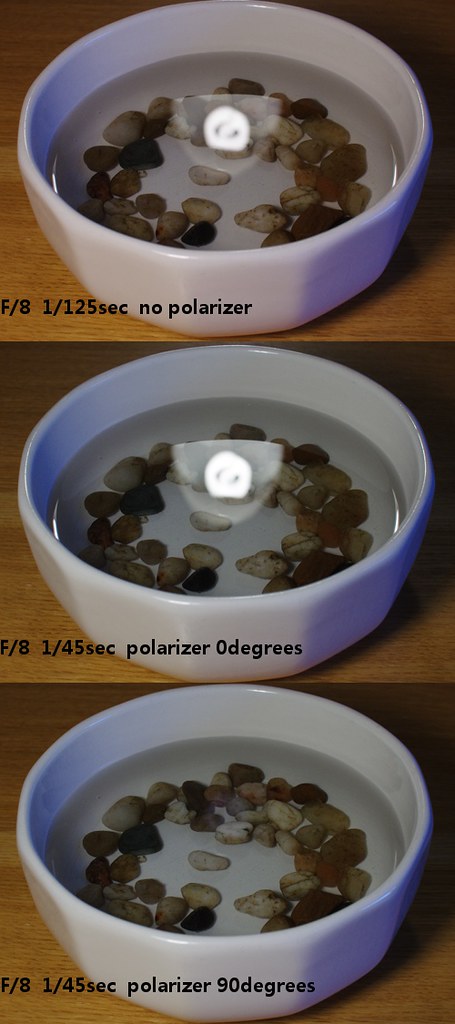Hopefully a picture is worth 1000 words.

These are three shots I took to illustrate the principle. The top shot is with no polarizer. This is our baseline. I put some rocks in the bowl so you can tell how much the reflection obscures what's below the water.
The second photo shows what you can do if you align the polarized filter to allow the maximum amount of polarized light. Notice the exposure time is 1.5 stops longer. This must be done because the polarizer is blocking a lot of the unpolarized light from the rest of the picture as well. This 1.5 stop exposure compensation will allow a comparable overall exposure.
The last shot shows how the polarized filter is more typically used. Here is is turned 90 degrees to block the polarized light from the direct reflection. Again, a 1.5 stop longer exposure is used.
While the difference between the 1st and 3rd shot is most striking, there is a definite difference when you use a polarizer to maximize the reflections, as seen in picture 2. The reflection of the shade around the bulb is brighter, and obscures the rocks below more than in the first shot.
Hope this helps!


 Similar Threads
Similar Threads 












 Post #17 by maltfalc
Post #17 by maltfalc








